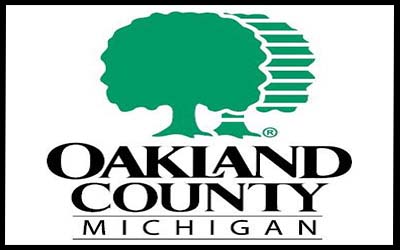Governor Whitmer Signs Executive Directive to Expand High-Speed Internet Access For Michiganders
Creation of Michigan High-Speed Internet Office will bring high-speed internet access to more residents, homes, and small businesses across the state
LANSING, Mich. — Governor Gretchen Whitmer today issued Executive Directive 2021-02 to help bridge the digital divide by establishing the Michigan High-Speed Internet Office (MIHI) to make high-speed internet more affordable and accessible. With high-speed internet becoming a necessity in our educational, professional, and personal lives, the new office will be dedicated to coordinating and advancing the State’s efforts to ensure that every home and business in our state has access to an affordable, reliable high-speed connection that meets their needs and the skills to use it effectively. Governor Whitmer announced the new office at the Dick & Sandy Dauch Club, part of the Boys & Girls Clubs of Southeastern Michigan.
“COVID-19 has only confirmed how the lack of high-speed internet access can cause too many Michiganders to struggle in their ability to engage in online learning, to use telemedicine to seek needed healthcare, to search for a new job or to take advantage of all the online resources,” said Governor Whitmer. “A fully connected Michigan is essential for our state to reach its economic potential in the 21st century global economy.”
Over $2.5 billion in potential economic benefit is left unrealized each year due to the digital divide. The divide includes both the hundreds of thousands of households that have not yet been reached by high-speed internet infrastructure, as well as the estimated 865,000 households that are disconnected due to the cost of subscribing to service or purchasing an appropriate device, a lack of digital skills, or other related barriers.
“Internet access is the most critical, enabling infrastructure that we can invest in. Whether you’re a student, an entrepreneur, a senior citizen, a farmer, a manufacturer, a job seeker, or any other Michigander, more opportunities and resources are available to you when you and your family are connected,” said Lt. Governor Garlin Gilchrist II. “There is bipartisan consensus that we need to close gaps in internet access and adoption. This is our generational opportunity to leverage the tremendous resources that are being made available at the federal level to develop the innovative partnerships that will achieve the goal of getting every home and business the high-speed connection they need.”
MIHI will be housed inside the Dept. of Labor and Economic Opportunity (LEO). With its focus on aligning Michigan’s economic and workforce development activities, LEO is well positioned to help MIHI develop the necessary infrastructure to bring service to each home and business in our state. MIHI will be responsible for developing the State’s high-speed internet strategy and coordinating its funding and implementation. Under the directive, the department will designate a Chief Connectivity Officer to serve as head of the office.
“Expanding high-speed internet access and affordability will help ensure that Michigan remains a world leader in innovation,” said LEO Acting Director Susan Corbin. “We need to make major investments to support digital inclusion and this office will be focused on leveraging every dollar available through the American Recovery Plan and other federal programs.”
Gaps in high-speed internet availability, affordability, adoption, and use disproportionately impact communities of color, those in rural areas, and low-income households. Evidence demonstrates that increasing opportunities to get connected have a range of benefits, including:
High-speed internet connections help students earn higher grades and build the digital skills they will need to succeed in higher education and the workforce. Students who miss out on digital skills are less likely to be interested in careers related to science, technology, engineering, and math. Regardless of socioeconomic status, students without a high-speed connection at home are less likely to attend college or university.
Health Outcomes Telemedicine has long been recognized as a way to increase access to care in areas where reaching a provider’s office in-person can be challenging or to make it possible to consult with a specialist without having to travel to a major medical center. In addition, there is evidence that telemedicine reduces hospitalizations of nursing home patients and reduces health care costs.
Small businesses that have websites have higher annual revenues and are more likely to have recently hired one or more employees than similar businesses that aren’t online. Those that use social media weekly are three times more likely to have hired recently than those that don’t.
Increased access to the internet can help address issues of isolation among older adults. Studies have shown that isolation is associated with worse health outcomes and even premature death among adults age 50 and over.
Civic Engagement Broadband is essential for the modern electorate to have access to educational materials about candidates and issues on ballots, as well as information on voter registration and precinct locations.
Climate Change Advanced grid technologies such as sensors, advanced metering infrastructure, grid monitoring and control systems, and remote reconfiguration and redundancy systems will be used to detect and solve problems remotely.
Rural Development Gaining high-speed internet connections can help support economic development in virtually all sectors of rural economies, ranging from farming to manufacturing to tourism and recreation. Rural communities that lack connectivity struggle to recruit businesses and retain population.
“Affordable and reliable high-speed Internet access can provide new opportunities for Michiganders 50 and over to use telehealth and other technologies that improve the quality of life and enable more people to age in place, where they prefer to be,” said Paula D. Cunningham, AARP Michigan State Director. “Broadband can support devices that make home health care a viable option for people with limited mobility or who live in rural areas far from health care facilities. Finally, increased access to the Internet, smart phones and computers can help address issues of isolation among older adults.”
“As a nonprofit organization, Connected Nation Michigan has been working with the State since 2009 to help close the digital divide. I am excited for today’s announcement, as so many previous efforts have recommended a state high-speed internet office and it has finally come to fruition,” said Eric Fredrick, Vice President for Community Affairs for Connected Nation Michigan. “Having this single point of contact will help to create a more digitally equitable state and ensure every Michigander has what they need to succeed in a digital economy.”
“Bridging the digital divide is a critical need for our state’s rural communities, Main Street businesses and agriculture sector, and we appreciate Governor Whitmer’s commitment to ensure state government is unified in its approach to tackling this challenge,” said Chuck Lippstreu, president of the Michigan Agri-Business Association. “We look forward to working with the new Office of High-Speed Internet to share agriculture’s unique perspective and do our part to connect Michigan.”
The Michigan High-Speed Internet Office is just the latest effort from the Whitmer Administration to expand high-speed internet access and affordability. In October 2020, Governor Whitmer and Lieutenant Governor Gilchrist announced the formation of the Connecting Michigan Taskforce, an interagency working group that has helped align the efforts related to high-speed internet access across state agencies and departments.
That same month, Governor Whitmer also signed into law the Broadband Expansion Act of Michigan, which codified the Connecting Michigan Communities (CMIC) grant program that, to date, has announced $12.7 million in grant awards that will help connect more than 12,200 homes and businesses. Additional grant awards will be announced later this month. Earlier this year, the Michigan Infrastructure Council also launched the “Dig Once” Project Portal that is designed for infrastructure asset owners to document infrastructure and utility work, which will help improve coordination and was called for both in the 21st Century Infrastructure Commission Report published in 2016 and the Michigan Broadband Roadmap published in 2018.
During the Whitmer Administration, Michigan-based companies have secured significant federal grant funding, including $363 million through the Federal Communications Commission’s Rural Digital Opportunity Fund, $4.8 million through the FCC’s COVID-19 Telehealth Program, and $32.6 million through the United States Department of Agriculture’s ReConnect Program. $25 million in funding provided by the CARES Act was used to support device purchasing and distance learning, and another $29.75 million to establish an educational equity fund.
A copy of Executive Directive 2021-02 can be found here:







